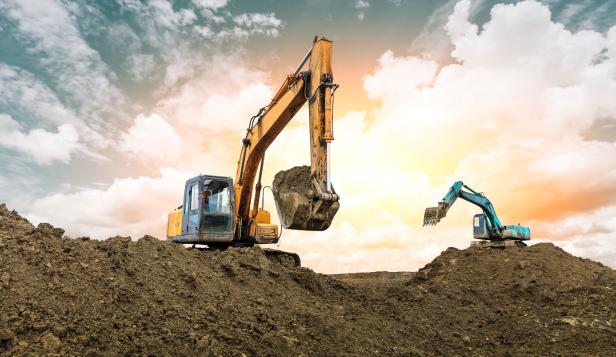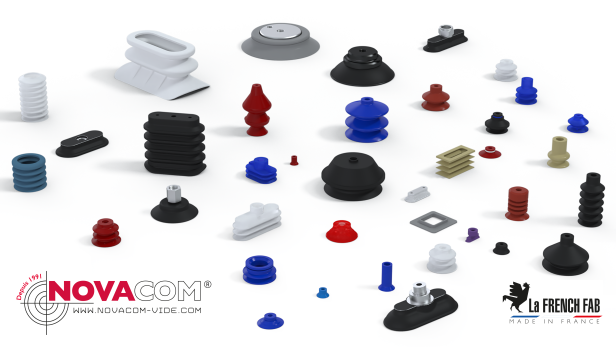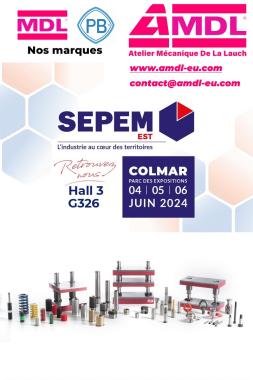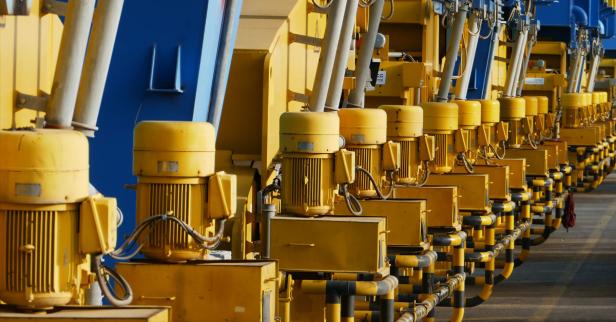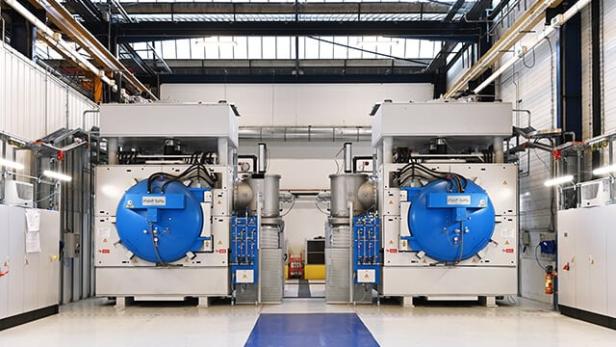Industry: the circular economy, a wonderful lever for creating new markets

The circular economy is emerging as an innovative model, offering French manufacturers an interesting alternative to the predominant linear economy. Faced with the challenges of supply, costs and growing regulations, Gregory Richa, French specialist in the circular economy, shares his insight on the need for manufacturers to make this change and offers them the keys to succeed in this transition towards a more sustainable and resilient economy.
Pivot and break out of an unsuitable linear model
“Nothing is lost, nothing is created, everything is transformed”. Antoine Lavoisier's famous maxim could perfectly apply to the economic model proposed by the circular industry. This economy is in fact a model of production and consumption which consists of sharing, reusing, repairing, renovating and recycling existing products and materials for as long as possible. In this way, the product life cycle is extended to reduce the use of raw materials and the production of waste. This model is opposed to the linear economy, which is based on the following scheme: extraction or harvesting of resources, manufacturing and assembly of goods, distribution, use and production of waste. Today, according to the Circularity Gap Report, 90% of materials are wasted, lost or abandoned. Gregory Richa, French specialist in the circular economy, co-founder of the consulting firm OPEO, explains to us how switching to the circular economy will become essential for manufacturers... or how a necessity can become an opportunity!
Why do you say that the industry of the future must be circular?
I think that in the next five years, all companies that have an activity based on a linear model will see their business model collapse. For what ? Because we are in a world with finite resources and depending on the sector, certain companies will face problems supplying raw materials due to their exhaustion or the geopolitical situation (closure of the Suez Canal, attacks in the Red Sea ). This will have a direct impact on Supply Chains which will in fact become very erratic and on the cost of products.
In addition, changes in regulations are gradually forcing manufacturers to adapt to these changes. Eliminate single-use or obsolescent products, create repairability indices... the measures put in place since the 2020 anti-waste law tend to multiply.
Finally, circularity is becoming a real expectation of the markets. Proof of this is the success of “Back Market or Vinted” which succeeded with efficient business models. Michelin, Schneider Electric, Renault trucks, and Groupe Seb have understood this and place circularity at the heart of their strategy. Tomorrow, if a company is only capable of delivering new products, this could become problematic for it.
Pragmatically, what are the real benefits for manufacturers of switching to circular?
We are all aware that the extraction of resources degrades our planet and that waste pollutes our oceans, but these observations do not constitute sufficient arguments for an industrialist faced with the dilemma between "the end of the month and the end of the world". When we talk about the circular economy it is above all a question of an economy - respectful and virtuous certainly, but above all an economy. Because the circular model offers the opportunity to create new markets and establish complementary activities within the company. It also promotes resilience, the development of services, increased proximity to customers, and a share of turnover independent of the Supply Chain... A new source of attraction for all teams, involving each department of the company (R&D, Marketing, repair, etc.), unlike a decarbonization project which would only affect a fraction of the organization
What should a manager who would like to launch into the circular economy do?
The manufacturer must first map its value chain downstream of production: customers, distributors, prescribers, repairers. The aim is to trace the product's post-factory journey, identifying its potential destinations, from scrap to resale abroad. Then, it must meet with these players to consider a joint offer focused on circularity, exploring possibilities such as repair or the use of data intended for predictive maintenance. The second step consists of testing these proposals with one or two partners, involving a period on the ground to refine the approach in collaboration with the market. Then, the question of scaling up will arise, requiring an investment of time even without immediate return on investment. The objective is to allocate 10 to 15% of the efforts and create a team dedicated full-time to exploring new value chains within the organization. Today, a French or European company integrates a lot of innovation into its products with data and electronics. However, this choice leads to the creation of less reliable, more fragile products. Although data and digital remain crucial for traceability, an overabundance of technology risks reducing the lifespan of the product, thus compromising circularity loops. The aim is to find the right balance, allowing the product to be attractive first hand without hindering its possibility of a second life. In a few years, will it be more attractive to own a state-of-the-art refrigerator or a fully functional, 10-year-old repaired model? The question is valid !
The circular economy therefore presents itself as a powerful lever for the emergence of new markets within the industry. Beyond meeting ecological imperatives, this transition to a more sustainable model offers manufacturers the opportunity to rethink their economic approach, diversify their activities, and create added value. By choosing circularity, businesses can not only adapt to current challenges related to resources, costs, and regulations, but also anticipate market trends and strengthen their long-term competitiveness.
When the circular economy creates added value and promotes economic development on a local scale.
Someflu , an SME manufacturing centrifugal pumps with an exceptionally long lifespan, generates more than half of its turnover from the refurbishment and retrofit of its pumps, adopting a services approach rather than massive sales.
Haulotte , a renowned mid-sized company in lifting equipment, has diversified its business by selling both new and reconditioned nacelles. This initiative opened up new markets, stimulating the creation of an additional factory and generating local jobs.
Our other news
See allJoin the largest community of industrial suppliers
- Helping you with your ongoing technology watch
- Provide you with detailed supplier statistics
- Give you international visibility
Discover the largest catalogue of industrial products on the market
- To offer you the best catalogue of industrial products on the market
- To guarantee you a 100% secure platform
- Enable you to have live remote exchanges
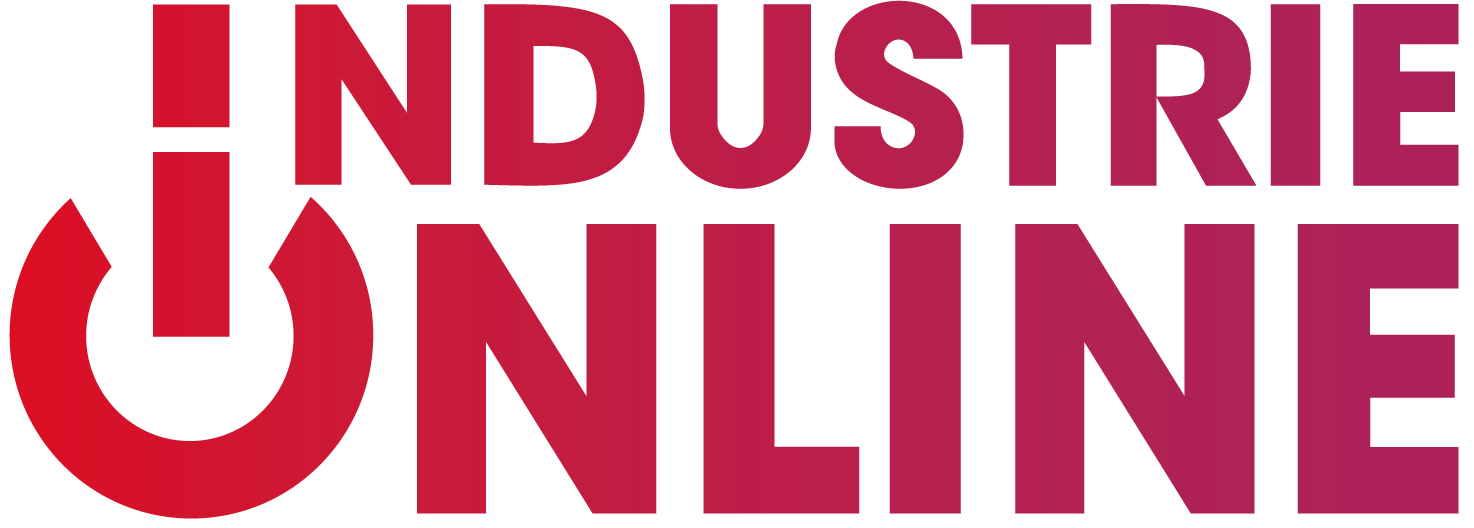

 Français
Français